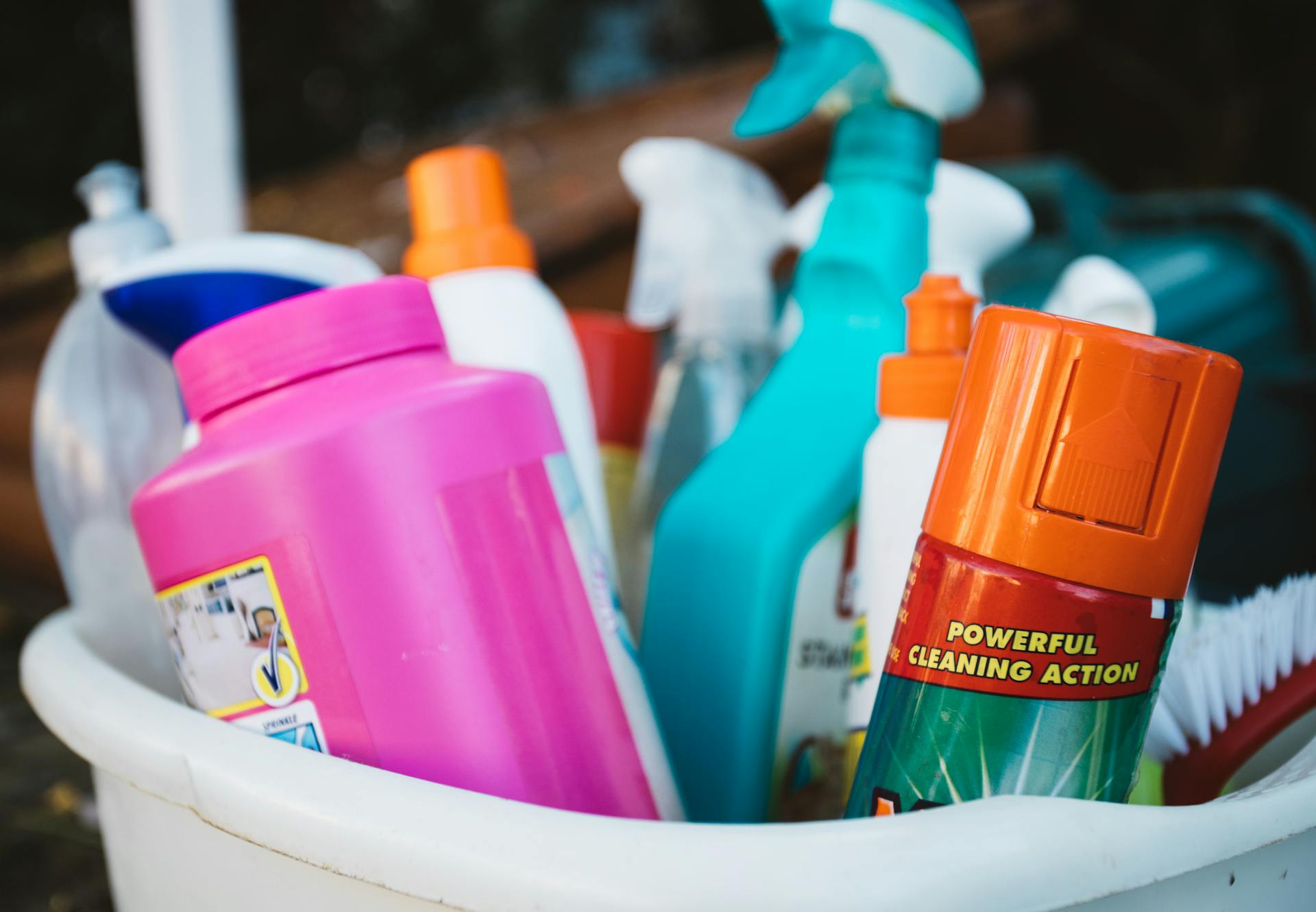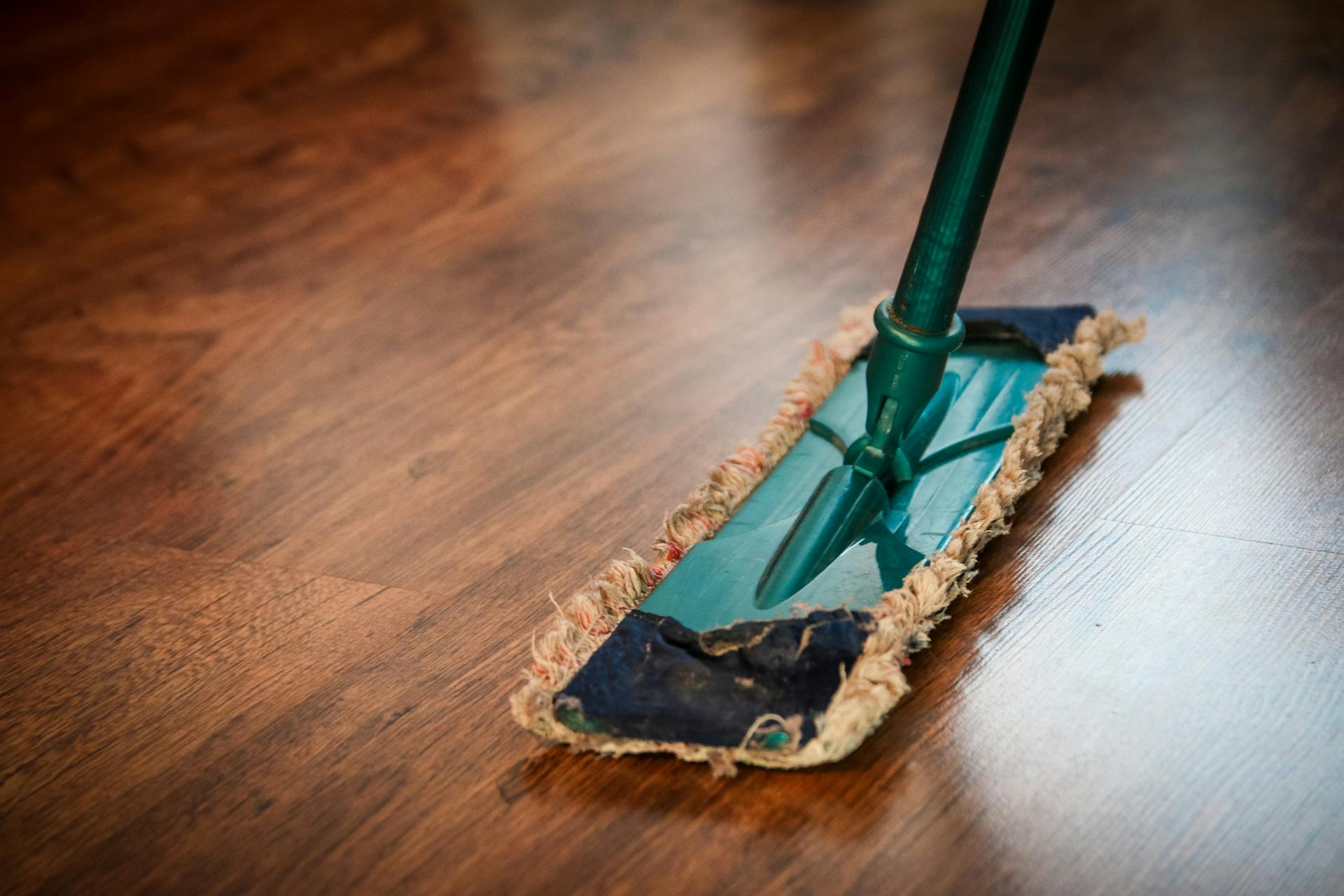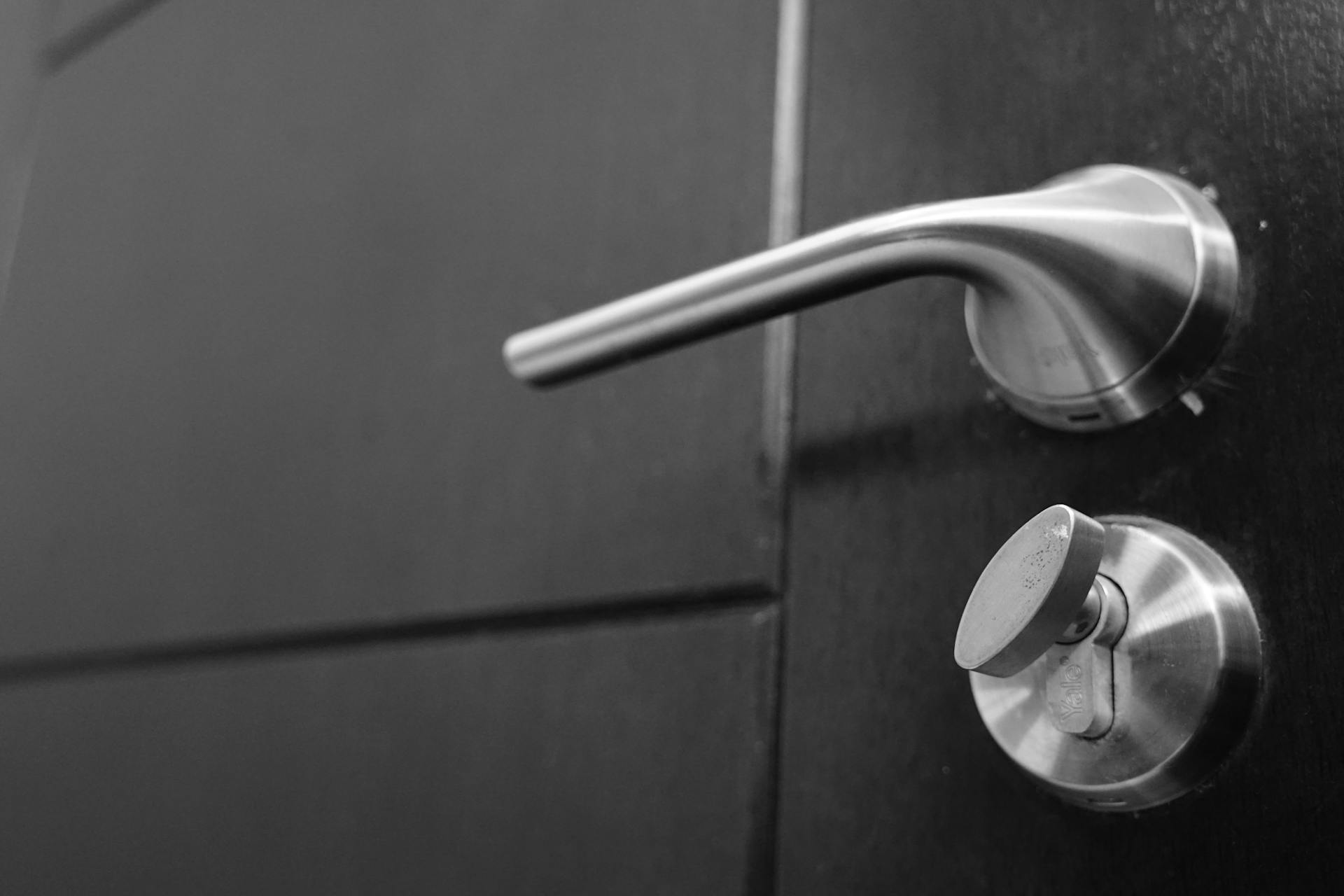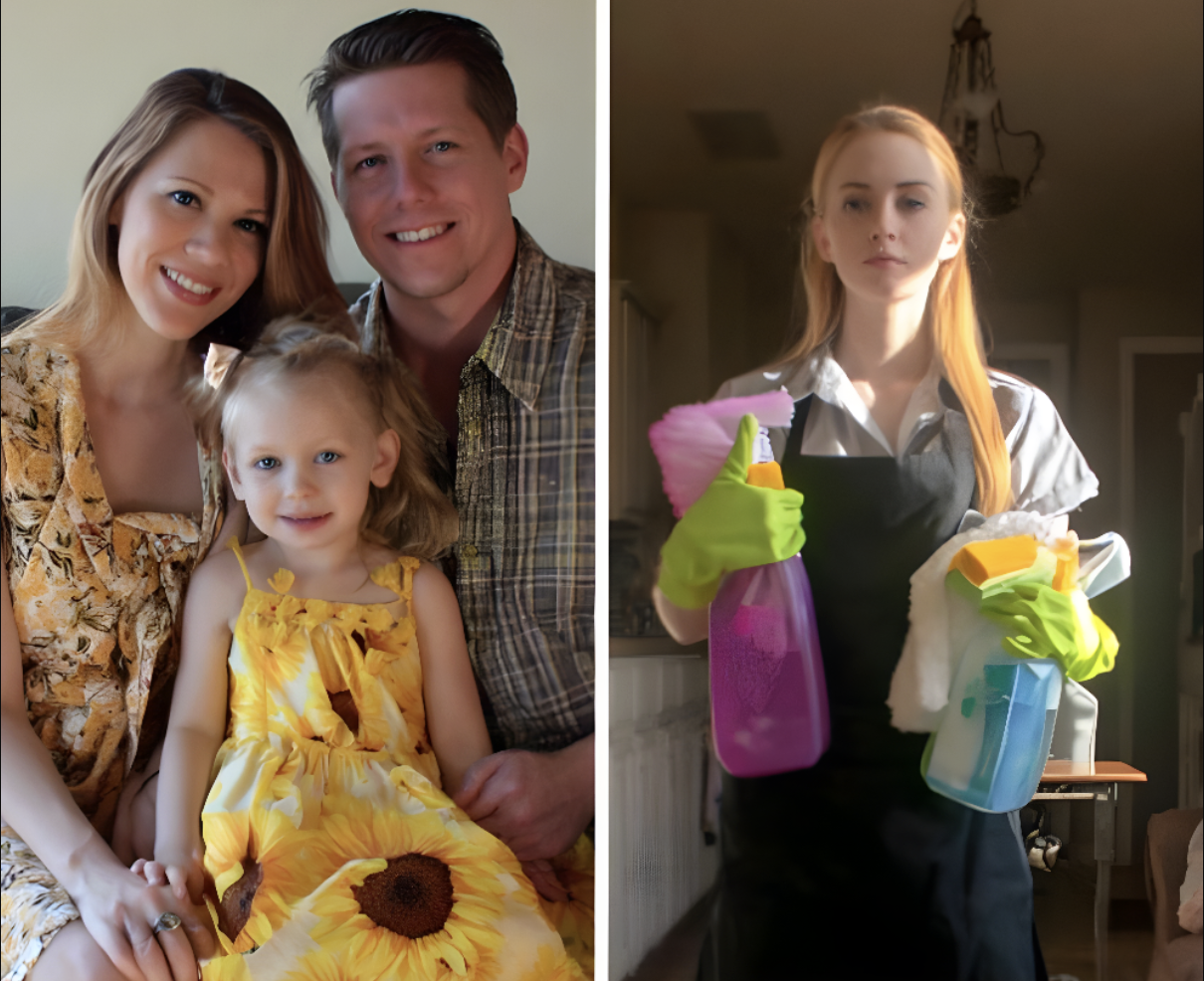Twenty years after my aunt took everything from me and disappeared from my life, fate brought me back to her doorstep. When Lena accepted a new high-paying cleaning job, she thought it was just another client for her rapidly expanding business until she saw the name associated with the address. Would she finally find the justice she sought?
My life changed dramatically when I was merely three years old. My parents tragically died in a car accident on their way back from a weekend getaway. Everything they owned, from our home to their life savings, was meant for me.
During this devastating time, my aunt Diane appeared, declaring herself my guardian. At the funeral, she wore pearls, smiling through her tears, assuring everyone she would take care of me. For a while, she did just that.

She moved into my parents’ house, redecorated the living room, and proclaimed herself the only family I had left. Unfortunately, my memories of those days are scant. What I do remember is that six months later, she absconded with all the money my parents had left for me, sold the house, and placed me into a foster family. It was as if she vanished from existence.
I was too young to comprehend betrayal, but I felt the sting of loneliness. I drifted from one foster home to another, struggling to understand why fate had dealt me such a hard hand.

By the age of 16, I had begun cleaning houses after school. At 18, I was cleaning offices at night. By the time I reached 23, I had started my own cleaning business, PureSpace Services. While working as a teenager, I learned enough to launch my venture, and I had six employees, two vans, and a reputation for excellence.
I recall the day I signed my first client contract. My hands were shaking so badly that I smeared the ink. Now, when people see me in a polished uniform, confidently smiling, they assume I’ve always had it together. They don’t see the girl who scrubbed her way through grief, using a mop to climb out of a life that nobody wanted for her.

It had been years since I thought about Diane—until one fateful Tuesday morning. Sitting in my small office, sipping lukewarm coffee while scrolling through customer requests on my tablet, something caught my eye.
“3,500 sq. ft. property. Weekly maintenance. Cash payment. Owner requests discretion.”
At first glance, it looked like any other luxury property, but then I saw the name. For a moment, I was frozen. Upon checking the address, I realized it bore the same ZIP code as my old family home.
This can’t be happening, I thought. Is it really… Diane?

Staring at the screen, I dimly remembered the scent of my old bedroom. I also recalled her promises to take care of me. At this juncture, I should have deleted the request. I told myself it wasn’t worth reopening old wounds. Yet, my fingers hovered above the keyboard, and I typed a response almost instinctively.
“Accepted. I will handle this personally.”
I reassured myself that this was not about revenge. It was about closure. It was about looking her in the eye as equals.
Three days later, I found myself parked in front of a grand Colonial-style house.

While it wasn’t the home my parents owned, it was eerily close. Upon the opening of the front door, I met Diane, standing there adorned in pearls.
“Yes?” she asked abruptly.
“Good morning, ma’am,” I replied, gripping my cleaning bag tightly. “I’m from PureSpace Cleaning.”
She cast me a quick, appraising glance. “I hope you’re better than the last girl. She was sloppy and smelled of cheap detergent. Come in.”
The air was scented with lemon polish and cold marble. Every surface gleamed, yet the house felt oddly hollow.

“Start upstairs,” she commanded crisply. “And don’t touch the jewelry box on my vanity. The last cleaner almost lost her job over it.”
“Yes, ma’am,” I replied.
I cleaned silently, moving through rooms that sparkled like a showroom but felt as lifeless as a mausoleum. Every inch of Diane’s home screamed affluence, though it was the type of wealth that masked decay.
As she was polishing a mirror, her voice rang out through the hall.
“Yes, Richard, of course, the fundraiser is still on,” she spoke into the phone, her tone dripping with feigned charm.

A pause ensued.
“But if we don’t host it, who will? Not everyone can afford to be generous.”
She then let out a laugh that turned my stomach.
For a brief moment, her reflection captured mine. She smiled to herself, smoothing her blouse and then turned away.
When I returned the following Friday, and again the week after, week after week, I returned to the same immaculate home. Not once did Diane express gratitude.
But she loved to talk.
Usually, the conversations were centered around her. She couldn’t stop boasting about her charitable work, her “important” circle of friends, and her impeccable taste.

One afternoon, she poured herself a glass of wine, settled at the vanity, and chatted while I dusted the frame behind her.
“I’m hosting a luncheon,” she said. “The mayor’s wife admires me. She says I have the finest house in the entire area.”
I murmured something polite, dusting off the frame that displayed a younger Diane standing alongside another woman—my mother. I hesitated, feigning to wipe the glass.
Diane followed my gaze. Her expression softened for a brief moment before she sighed.
“I once had a niece,” she said suddenly. “My sister’s child. That poor thing. Her parents died young, and I tried to raise her, but she was impossible. Wild and ungrateful. I did everything for her, and she just turned against me.”
My hand froze mid-dust.
“You had a niece?” I asked, keeping my tone neutral.

“Had,” she sighed. “I lost track of her years ago. Sometimes family is just… disappointing.”
I swallowed hard. “That must have been difficult.”
“It was,” she said, swirling her wine. “Some people just don’t appreciate sacrifices.”
I forced a smile and turned my face away before she could see the emotions in my eyes.
With each subsequent visit, I learned something new about her—like how she bragged about her husband’s business contacts, how she spoke to waitstaff, and how she lifted not a finger in her own home.

In the following week, she prepared for her grand charity dinner. With her husband out of town, she zipped around the house like a drill sergeant before battle.
“Don’t get any dirt near the dining room! Those carpets cost more than your salary!” she scolded.
“Yes, ma’am,” I replied calmly, though I wanted nothing more than to throw the mop at her feet.
“Polish the silver,” she snapped. “And make sure the crystal sparkles. The mayor’s wife is coming, and I won’t allow any embarrassments.”
“Yes, ma’am.”

When the guests arrived, I remained, as usual, in the kitchen. But voices reverberate in such homes.
“My husband and I are _blessed_,” Diane announced in a sickly-sweet tone. “We’ve worked hard for everything we have.”
Almost a plate dropped from my hand.
Then a guest replied, “Oh, Diane, you’ve always had luck. Your sister’s insurance made it easy for you, didn’t it?”
The room fell silent.
“That was decades ago,” Diane replied. “I made something of it.”
My chest tightened. I felt the anger burning behind my ribs but kept my face neutral as I continued drying dishes.

That night, I found it difficult to sleep. Each time I closed my eyes, her face came to mind.
When I returned the following week, I made a decision.
As I arrived, she greeted me as usual, wearing a tight smile with a complaint on the tip of her tongue.
“You’re late,” she said.
“I’m sorry, ma’am. There was traffic.”
“Excuses,” she muttered. “Start in the living room. The mayor’s wife is coming again.”
“Yes, ma’am,” I replied. As I placed my supplies down, I added, “By the way, I brought you a little something.”
Her eyebrows arched, and suspicion flared in her eyes. “For me?”

“Yes, ma’am,” I stated flatly. “Just a small surprise. I thought you’d like it.”
She snorted, “We shall see about that.”
I smiled weakly and turned away, my heart pounding.
This time, I was not there just to clean.
I was there to confront the ghost of my past.
As Diane descended the stairs an hour later, she appeared as tranquil as ever. But the moment she saw the coffee table, that changed.
A small framed photo rested in the center.
It featured a man and a woman sitting on a picnic blanket, arms wrapped around a smiling three-year-old girl in a yellow sun dress.

Diane’s hand trembled as she reached for the photo. “Where did you get this?”
I straightened slowly, cloth still in hand. “You tell me.”
“Th-That’s my niece,” she stuttered.
“Your sister’s daughter,” I whispered. “The one you claimed was wild and ungrateful.”
Her eyes widened, breath catching. “You… how did you…?”
“Because that little girl was me.”

The silence that followed felt suffocating. The only sounds were the quiet hum of the refrigerator and the ticking of the ornate clock behind her.
Finally, she whispered, “No… no… this can’t be.”
“Yes, it can,” I replied steadily. “And it is. You stole everything my parents left for me. You sold our home, took the insurance money, and left me in a foster family. I remember crying for you to come back. You never did.”
Her eyes filled with tears.
“Why are you here?” she whispered. “What do you want from me?”

I held her gaze. “I want to see what kind of woman you’ve become. And to show you what kind of woman I am despite you.”
She swallowed hard. “You came here to humiliate me.”
“No,” I softly replied. “I came to remind you that you can’t rewrite the past.”
Her voice trembled as she stood, gripping the back of the sofa. “Do you think you’re better than me?”
I smiled faintly. “No. But I have learned to earn everything you tried to steal.”
“You shouldn’t have come here,” she stated.
“Perhaps not,” I said as I picked up my cleaning basket. “But I’m glad I did.”
As I reached the door, I turned one last time.

“I hope you learn to clean up your own mess one day,” I said. “Not just the one you pay others to set right.”
And then I left her trembling with the photo in her hand.
Two weeks later, I received a call from a number I didn’t recognize. When I answered, a calm male voice said, “Is this Lena?”
“Yes, who is this?”
“This is Richard,” he replied. “Diane’s husband.”
I gasped. “What do you want?”
He hesitated. “I don’t know what you said to her, but… I found everything. The hidden accounts. The missing insurance money. The fake charities. She… is leaving the house. I filed for divorce.” His tone softened. “I don’t know who you are, but thank you.”

At that moment, I felt a strange sense of satisfaction for the first time in years.
Months passed, and I moved on with my life. I didn’t expect to see Diane again until the morning my receptionist buzzed through the intercom.
“There’s a Miss Diane here,” she said. “She doesn’t have an appointment, but she says it’s urgent.”
I almost told her to send her away, but something stopped me.
“I’ll be there,” I said.
As I stepped into the lobby, Diane stood there in a plain gray sweater, without pearls and make-up.

“I came to apologize,” she said softly. “You didn’t deserve what I did. I ruined everything I touched… for what? Money that never made me happy.”
I crossed my arms. “Why now?”
She swallowed. “Because I saw your name in the newspaper. Your company donated to the children’s group home in town. You’re helping the kids I never cared for. I couldn’t help a single one, but you’re helping dozens.”
Her voice cracked. “Your mother would be proud.”
For a long moment, I simply stared at her. The woman who had stolen my childhood now stood before me, stripped of everything but her guilt.

“Maybe she would,” I finally replied. “But she would also want me to forgive you.”
She blinked. “Do you?”
I offered a weak smile. “I’m still learning.”
Diane nodded, tears streaming down her face as she quietly exited.
That afternoon, I sat at my desk, staring at the same photo I had laid on her table: my parents and me on that sun-drenched picnic day.
I traced the glass with my thumb, realizing that revenge felt satisfying momentarily, but grace… that lingered.
Because some messes shouldn’t be cleared with anger. They should be washed away with forgiveness.
This story is a work of fiction inspired by real events.
